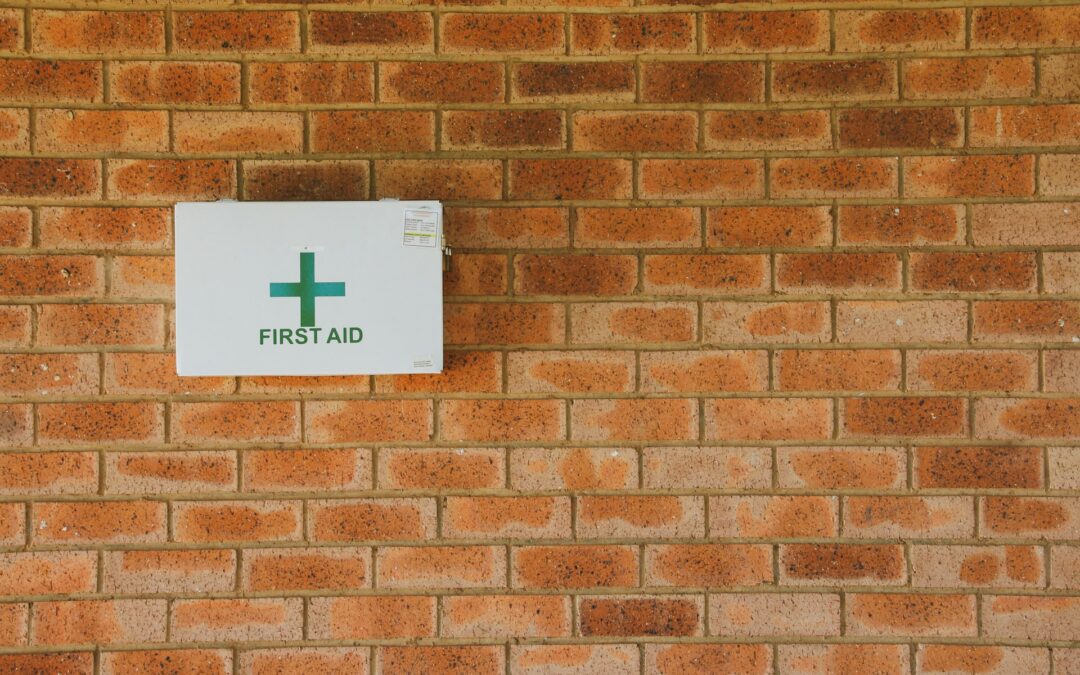Let’s talk about first aid for cats and dogs! First off: do you have a pet first-aid kit? Keeping one is similar to having one for yourself and your family. You hope you never have to use it, but when you need it you’re glad you made one! Having pets is sometimes like having a front-row seat to a demolition derby. Between pent-up energy, accidents, and misjudgments – cats and dogs may get hurt every once in a while. Let us help you pack up a first aid kit for your pet so you are prepared for anything.
Why You Need a First Aid Kit for Your Pet
We cannot predict accidents. We simply must prepare for them. Rushing around your home to find the right materials, or being stuck on a trail with nothing around when an emergency hits, is overwhelming and dangerous.
Common Accidents for Pets
- Ripped dew-claws
- Scrapes and abrasions
- Overheating
- Pulled muscles
- Broken bones
While some small problems can be treated at home with a well-stocked first aid kit, others need emergency intervention.
If your pet is bleeding excessively (blood does not stop after 5 min of direct pressure), suffered from overheating, or was bitten by another animal, contact an emergency veterinarian right away.
Our emergency veterinary services in Gilbert Arizona can be reached at 480-892-1577
What to Put in a First-Aid Kit for Pets
- Disposable gloves – These help protect you from blood, and other germs when applying first aid.
- Bandages – The essential bandages are non-adhesive bandages, bandage tape, non-stick bandage pads, and pressure wraps. These will help you cover wounds and help you apply pressure to bleeding areas.
- Blunt scissors – for cutting bandages and tape to size.
- Tweezers – for removing splinters or ticks.
- Alcohol or Sanitizer – Either individually wrapped pads or a bottle with extra bandage pads will help you clean skin, sanitize hands or other items for first aid.
- Emergency eye wash – Not only is this good for flushing debris from the eyes, but the sterile solution can be used in a pinch to clean wounds. Remember that it only takes moments for a pet to go blind from trauma to an eye, so contact your veterinarian if their eye is affected.
- Oral-activated charcoal or hydrogen peroxide – This should only be used to induce vomiting under a veterinarian’s direction, as it can be dangerous to induce vomiting if unneeded.
- Pet thermometer – Remember that a normal temperature for cats and dogs is between 101º and 102.5º!
- Petroleum jelly – Perfect for dressing a wound until you get to a veterinarian, or to cover burns or raw, rough paw pads.
- Plastic syringes – These are used to administer medications or to flush out wounds before treating them.
- Styptic powder – this can help stop bleeding if you trim your pet too close to the quick.
- Emergency ice packs – these are good for sprains or if your pet starts to overheat.
- Towels – to help aid in cleaning up your pet in an emergency or for warmth if needed.
- Treats – dressing wounds is stressful and treats can help pets tolerate first aid better.
- Essential medications – this is especially important for senior cats and dogs.
- Copies of important medical paperwork – especially rabies vaccinations, or pet licenses!
Essential Items in a Travel Kit
Now let’s go over how to create a travel-sized first aid kit for your pets. For a car kit, you can create a decently large one with several items. However, a hiking kit will need to be more compact.
For car kits, we recommend including all the items listed above (or grabbing home kit when you hit the road). Before you go add: extra water, a collapsible water dish, a blanket, and extra emergency ice packs.
The travel essentials might differ for each pet. For example, some of us have dogs that like to eat mystery plants. If so, bring along activated charcoal or some hydrogen peroxide.
Essentials on a Hike
We understand you want to pack light on a hike, which is why we only have a few hiking essentials. These can easily be added to a fanny pack.
- Extra water
- Bandages, tape, and gauze
- Tweezers or a tick remover
- Specialty Items – These can medications, ice packs, charcoal, hydrogen peroxide, or an emergency dog lift sling. These slings are for dogs too large to carry in your arms.
Emergency Pet Care You Can Count on in Gilbert Arizona
If you find yourself facing an emergency with your pet do not hesitate to call us here at East Valley Animal Hospital. We offer emergency care, urgent care, and more. Here at East Valley Animal Hospital we understand how much your pet means to your family, and will treat them with the love and respect they deserve. If you are looking for emergency care call us at 480-892-1577.
Images used under creative commons license – commercial use (9/23/24). Photo by Glen Carrie on Unsplash.

